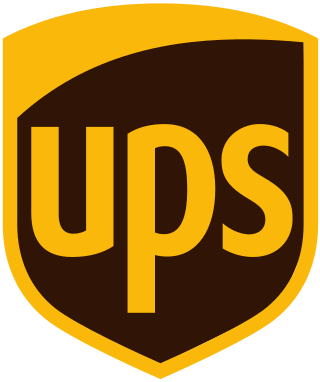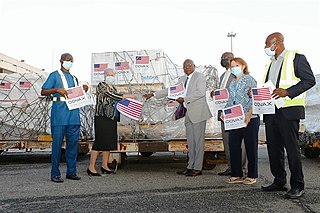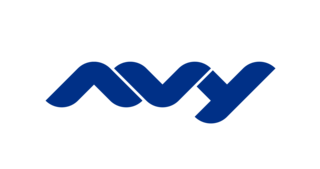
Amazon.com, Inc., doing business as Amazon, is an American multinational technology company engaged in e-commerce, cloud computing, online advertising, digital streaming, and artificial intelligence. It is considered one of the Big Five American technology companies, the other four being Alphabet, Apple, Meta, and Microsoft.

United Parcel Service, Inc. (UPS) is an American multinational shipping & receiving and supply chain management company founded in 1907. Originally known as the American Messenger Company specializing in telegraphs, UPS has expanded to become a Fortune 500 company and one of the world's largest shipping couriers. UPS today is primarily known for its ground shipping services as well as the UPS Store, a retail chain which assists UPS shipments and provides tools for small businesses. UPS offers air shipping on an overnight or two-day basis and delivers to post office boxes through UPS Mail Innovations and UPS SurePost, two services that pass on packages to the United States Postal Service for last-mile delivery.

Kayonza is a small town in Kayonza district, Eastern Province, Rwanda.

A delivery robot is an autonomous robot that provides "last mile" delivery services. An operator may monitor and take control of the robot remotely in certain situations that the robot cannot resolve by itself such as when it is stuck in an obstacle. Delivery robots can be used in different settings such as food delivery, package delivery, hospital delivery, and room service.
Mampong is a town and the capital of the Mampong Municipal in the Ashanti Region of Ghana. As of 2012, the town has a population of 42,037 people. The town is home to the Mamponghene, Nana Osei Bonsu II.

Healthcare in Ghana is mostly provided by the national government, and less than 5% of GDP is spent on healthcare. The healthcare system still has challenges with access, especially in rural areas not near hospitals.

Walewale is a town and the capital of Mamprusi West Municipal in the North East Region of Ghana. The West Mamprusi Municipal is one of the 261 Metropolitan, Municipal, and District Assemblies (MMDAs) in Ghana, and forms part of the 6 MMDAs in the North East Region. The West Mamprusi Municipality is one of 45 new districts created in 1988 under the Government of Ghana’s decentralization and was later replaced with LI 2061 in 2012. With its administrative capital as Walewale.

Amazon Prime Air, or simply Prime Air, is a drone delivery service operated by Amazon. The service uses delivery drones to autonomously fly individual packages to customers, and launched in 2022. The service currently operates in two cities in the US, with plans to expand into the UK and Italy in 2024.

A delivery drone is a unmanned aerial vehicle (UAV) designed to transport items such as packages, medicines, foods, postal mails, and other light goods. Large corporations like Amazon, DHL and FedEx have started to use drone delivery services. Drones were used effectively in the fight against COVID-19, delivering millions of vaccines and medical supplies across the globe. Drone deliveries are highly efficient, significantly speeding up delivery times and avoiding challenges traditional delivery vehicles may encounter. Given their life-saving potential use cases for medical supplies in particular have become the most widely-tested type of drone delivery, with trials and pilot projects in dozens of countries such as Australia, Canada, Botswana, Ghana, Uganda, the UK, the US among others.

Amazon Prime is a paid subscription service of Amazon which is available in various countries and gives users access to additional services otherwise unavailable or available at a premium to other Amazon customers. Services include same, one- or two-day delivery of goods, and streaming music, video, e-books, gaming, and grocery shopping services. In April 2021, Amazon reported that Prime had 200 million subscribers worldwide.

Flirtey was a Reno, Nevada-based drone delivery company. The company completed the first Federal Aviation Administration (FAA)-approved drone delivery in the United States in 2015, the first FAA-approved urban delivery in March 2016 and the first FAA-approved commercial drone delivery to a customer home in July 2016. Flirtey is also developing air traffic control computer software for drones in a collaboration with NASA. One of the company's drones is in the National Air and Space Museum of the Smithsonian Institution in Washington, D.C.
The Ghana Drone Delivery Service was launched on 24 April 2019, to deliver medical supplies within designated areas in Ghana with the use of drones.
UPS Flight Forward Inc. is a wholly owned subsidiary of UPS focused on drone delivery. The company was formally launched in July 2019, and on October 1, 2019, became the first company to receive the Federal Aviation Administration's full Part 135 Standard certification, allowing the company to operate an unlimited remote-controlled drone delivery network in the United States.

1Life Healthcare, Inc. is a membership-based primary care service with in-person care and online resources, including a mobile app. In February 2023, it was acquired by Amazon.

Wingcopter GmbH is a German aerospace company that designs and manufactures unmanned eVTOL delivery drones capable of providing last-mile delivery as well as mapping, surveying, and inspection. Their flagship drone, Wingcopter 178 Heavy Lift (HL), set the Guinness world speed record for remote-controlled tilt-rotor aircraft in 2018, flying at an average speed of 240.6 km/h. To date, the company has partnered with commercial and humanitarian organizations to perform drone delivery of critical supplies in Africa, the South Pacific, Ireland, and Scotland. During the COVID-19 pandemic, Wingcopter partnered with Thales, Skyports, and the NHS to provide beyond visual line of sight (BVLOS) delivery of medical test samples and other supplies to a hospital on a remote Scottish island. The company has been recognized by the World Economic Forum as "2020 Technology Pioneer". The company is amongst ten other drone companies to be selected by FAA to participate in a type certification program for delivery drones.

Operation Broadshare is the code name for the British military operation to address the COVID-19 pandemic overseas, primarily in the British Overseas Territories (BOTs) and British overseas military bases. The operation runs in parallel to a similar military operation in the United Kingdom, named Operation Rescript.

Volansi is an American unmanned aerial vehicle logistics company. Founded in San Francisco, California in 2015, the company utilizes VTOL drones for commercial, medical and defense operations.

COVID-19 Vaccines Global Access, abbreviated as COVAX, is a worldwide initiative aimed at equitable access to COVID-19 vaccines directed by the GAVI vaccine alliance, the Coalition for Epidemic Preparedness Innovations (CEPI), and the World Health Organization (WHO), alongside key delivery partner UNICEF. It is one of the four pillars of the Access to COVID-19 Tools Accelerator, an initiative begun in April 2020 by the WHO, the European Commission, and the government of France as a response to the COVID-19 pandemic. COVAX coordinates international resources to enable low-to-middle-income countries equitable access to COVID-19 tests, therapies, and vaccines. UNICEF is the key delivery partner, leveraging its experience as the largest single vaccine buyer in the world and working on the procurement of COVID-19 vaccine doses, as well as logistics, country readiness and in-country delivery.

The Government of Ghana initially responded to the virus through a nationwide disinfection and fumigation exercise which began in April 2020. In order to curb the spread of the virus, the government enforced lockdowns, aggressive contact tracing, public bans and social measures such as encouraging the wearing of face masks. By April, it began the gradual reopening of the country; lifting all lockdowns while maintaining protocols such as social distancing. Throughout the pandemic, the government partnered with the private sector in order to roll out economic reliefs and recovery programs as a result of the impact of the pandemic on Ghana's economy. There was also an expansion of medical facilities and the improvement of testing logistics.

Avy B.V. is a Dutch technology company that develops and operates drones and aerial networks for long-range missions. Avy's B.V.'s drones can take off and land vertically like a helicopter and fly longer distances than a quadcopter because of their fixed-wing configuration. Its second drone, the Avy Aera, is a VTOL fixed-wing drone and was released at Amsterdam Drone Week in 2019.






















